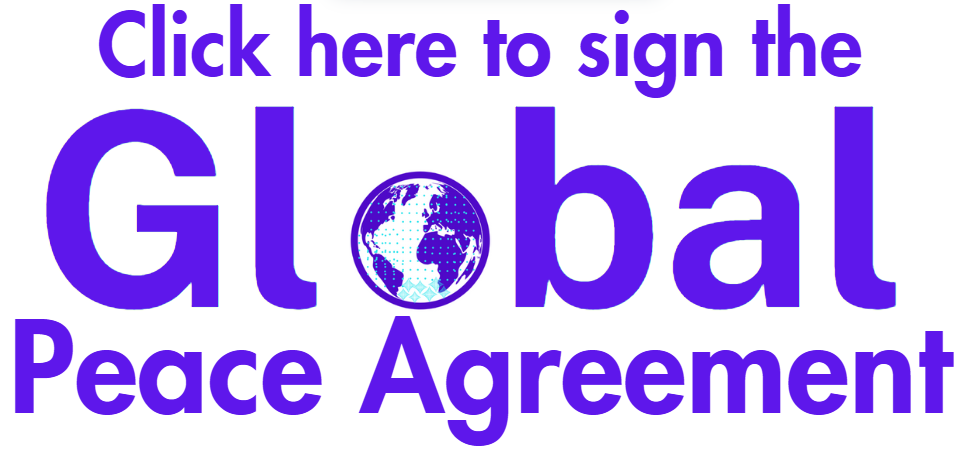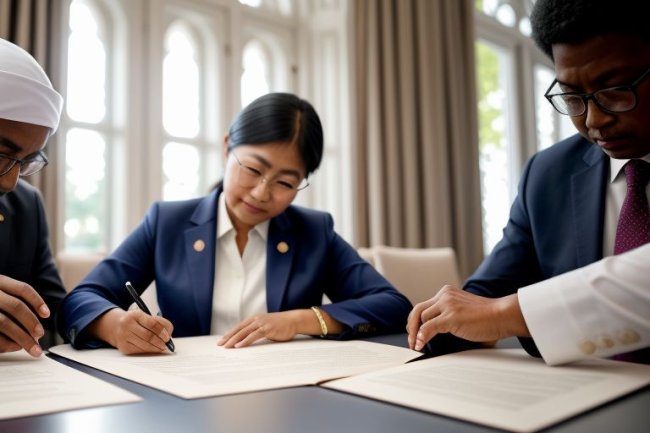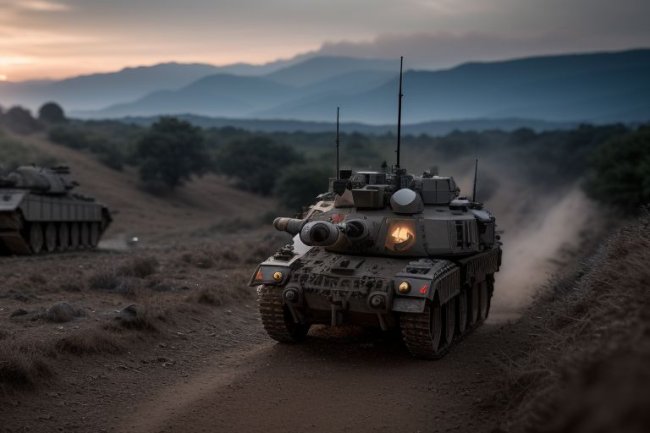The Role Of International Law And Enforcement Mechanisms
Undoubtedly, the devastating aftermath of war has left indelible scars on societies across the globe. The haunting images of destruction, loss, and suffering serve as poignant reminders of the human cost of armed conflicts. The pressing need for a comprehensive and inclusive approach to peace became increasingly evident in the wake of such a profound tragedy.

In response to the horrors of war, the global community recognized the urgency to establish a framework that would unequivocally outlaw the use of war as a conflict resolution. Such a framework would transcend national borders and ideologies, fostering a collective commitment to prevent and resolve conflicts through peaceful means.
The Evolution of International Law
Engaging in the rich tapestry of human history, the evolution of international law unfolds like an intricate mosaic woven with threads of ancient wisdom and modern aspirations. Tracing its roots back to the dawn of civilization, early societies recognized the importance of establishing rules to govern relations between states and individuals. From the Code of Hammurabi in ancient Mesopotamia to the Laws of Solon in ancient Athens, early legal systems laid the groundwork for the emergence of a more structured international order.
However, the cataclysmic events of the 20th century acted as a crucible, shaping international law into a force for peace and global cooperation. The devastation of two World Wars, with their immeasurable loss of life and unfathomable suffering, served as a stark wake-up call to humanity. In the aftermath of such unprecedented horror, the pressing need for a new paradigm of international relations became evident.
In 1945, the world witnessed a historic moment as the United Nations, a visionary organization, was founded to prevent future wars and promote collective security. The establishment of the UN marked a pivotal stride forward in the evolution of international law, cementing the principles of sovereignty, territorial integrity, and the peaceful resolution of disputes as its guiding pillars.
With its Charter in place, the UN became a beacon of hope, a forum where nations could come together, share their aspirations, and forge alliances for a more peaceful world. The General Assembly, as the embodiment of the collective voice of the international community, provided a platform for dialogue, cooperation, and problem-solving. The Security Council, entrusted with the responsibility of maintaining international peace and security, gained prominence as the global guardian against aggression and conflict.
The creation of specialized institutions and agencies inside the UN system significantly aided the development of international law. Notably, the United Nations Educational, Scientific, and Cultural Organization (UNESCO), the World Health Organization (WHO), and the International Labor Organization (ILO) have all made significant contributions to developing international collaboration and building a culture of global solidarity.
The expansion of international law did not end with the establishment of the UN; it continued to evolve, reflecting the changing dynamics of the world. The 1948 Universal Declaration of Human Rights passage marked a key turning point, asserting each person's intrinsic dignity and unalienable rights, regardless of race, religion, or nationality.
The adoption of several conventions and treaties in the next decades, which addressed problems like genocide, racial discrimination, and environmental protection, strengthened the position of international law in solving global problems. Treaties like the Geneva Conventions sought to safeguard the rights and protections of civilians and prisoners of war during armed conflicts.
The evolution of international law was not without its challenges, as the dynamics of power and politics sometimes influenced the implementation and enforcement of legal norms. Nevertheless, the collective resolve to create a more just and peaceful world remained strong.
Today, international law continues to adapt and respond to emerging challenges, such as cyber warfare, climate change, and terrorism. The International Criminal Court (ICC) stands as a symbol of accountability, holding individuals accountable for the most heinous crimes under international law.
The evolution of international law is an ongoing journey reflective of the aspirations and struggles of humanity. It is a testament to the power of dialogue, cooperation, and shared values in shaping a world where peace, justice, and human rights prevail. As the global community stands at the threshold of a new era, the significance of international law in building a harmonious and prosperous future cannot be overstated. It is a journey that transcends borders, ideologies, and cultures, illuminating the path toward a world where the harmonious symphony of peace silences the echoes of war.
The United Nations Charter and the Prohibition of War
The United Nations Charter serves as the bedrock of international law, enshrining the principles of sovereign equality, peaceful dispute resolution, and non-use of force in international relations. The threat or use of force against a state's political independence or territorial integrity is expressly forbidden by Article 2(4) of the Charter.
The Charter's emphasis on peaceful resolution and collective security mechanisms provides a framework for outlawing the use of war as a tool of aggression.
The Role of Customary International Law
Beyond the UN Charter, customary international law plays a vital role in outlawing war. Customary law encompasses longstanding practices and behaviors accepted as binding on states. The prohibition of war has gradually become a norm of customary international law, reinforced by the widespread rejection of aggressive wars and the acceptance of peaceful dispute resolution.
International Treaties and Agreements
International treaties and agreements form a cornerstone of international law in outlawing war. Treaties such as the Geneva Conventions and the Kellogg-Briand Pact (Pact of Paris) are pivotal in regulating armed conflicts, protecting civilians, and condemning wars of aggression. The Kellogg-Briand Pact, in particular, renounces war as an instrument of national policy, with signatories pledging to seek peaceful means to resolve disputes.
The Role of International Courts and Tribunals
International courts and tribunals guard international law, ensuring its implementation and enforcement. The International Court of Justice (ICJ) is essential in resolving disputes between countries and upholding international law's norms. Through its rulings and decisions, the International Court of Justice (ICJ) upholds the prohibition of war and promotes peaceful dispute resolution.
The Responsibility to Protect (R2P)
In international law, the idea of the Responsibility to Protect (R2P) has become essential. R2P emphasizes that the international community has a responsibility to protect individuals against crimes against humanity, including genocide, war crimes, ethnic cleansing, and genocide. R2P contributes to the ultimate goal of foregoing the use of force by preventing conflicts and resolving their root causes.
International Human Rights Law
International human rights law serves as a foundation for peacebuilding and conflict prevention. Protecting and promoting human rights are intrinsically linked to preventing conflicts and ensuring a peaceful world. Upholding human rights principles contributes to creating conditions where war is rejected to address grievances.
Enforcing International Law
The development of international law gains importance due to its dependence on enforcement mechanisms. Within the UN Charter, Chapter VII confers upon the Security Council, a crucial component of the UN, the authority to enforce sanctions and authorize using force to uphold or restore global peace and security. However, political considerations may hinder the Security Council's decision-making process, creating obstacles to effective enforcement.
Strengthening the International Criminal Court (ICC)
The International Criminal Court (ICC) is critical in holding individuals accountable for war crimes, genocide, and crimes against humanity. The ICC's jurisdiction and prosecutions deter potential perpetrators, reinforcing the prohibition of war and promoting accountability.
The Role of Civil Society and Non-Governmental Organizations (NGOs)
Civil society and NGOs have become instrumental in promoting international law and peacebuilding initiatives. Through advocacy, education, and mobilization, these organizations raise awareness, build consensus, and drive governments to commit to outlawing the use of war.
The role of international law and enforcement mechanisms in outlawing the use of war cannot be understated. As we navigate the complexities of the modern world, all stakeholders' continued engagement and creativity are vital in ensuring that international law serves as a powerful force for peace, justice, and humanity. By embracing the vision of a world without war, we reaffirm our commitment to fostering a global community where conflicts are resolved through dialogue, cooperation, and mutual respect, ultimately paving the way for a brighter and more harmonious future for all.
Promoting A Culture Of Peace And Non-Violence Through Education And Advocacy
Building a culture of peace requires a multifaceted approach beyond mere ceasefire agreements or diplomatic negotiations. Education and advocacy stand at the forefront of this transformative journey, empowering individuals and communities to embrace peaceful coexistence and resolve conflicts through non-violent means.
Education serves as a cornerstone for nurturing a culture of peace and non-violence. It is within the classroom that the seeds of compassion, empathy, and understanding are sown. By integrating peace education into curricula at all levels, from early childhood to higher education, societies can instill a deep appreciation for diversity and the importance of dialogue in their citizens. Peace education encourages critical thinking and conflict resolution skills, enabling individuals to challenge stereotypes and biases and fostering an environment conducive to peaceful interactions.
Cultivating global citizenship is at the heart of promoting a culture of peace. Education empowers individuals to recognize their interconnectedness with people around the world, promoting a sense of shared responsibility for the well-being of humanity and the planet. Through exposure to diverse cultures, histories, and perspectives, students gain the tools to navigate complex global issues, transcending borders and embracing a collective vision of peace and unity.
Advocacy is a powerful tool in promoting peace and non-violence on a broader scale. Civil society organizations, grassroots movements, and individuals can engage in advocacy efforts to raise awareness about peace-related issues, influence public opinion, and press for policy changes. Advocacy campaigns can focus on disarmament, conflict resolution, social justice, and human rights, mobilizing communities to become agents of positive change.
The media is a key factor in affecting public perception and behavior. The transmission of false information and incendiary narratives that could ignite conflict can be blocked by encouraging media literacy, critical thinking, and ethical journalism.
Societies can foster an informed and empathetic public discourse by encouraging media platforms to prioritize peace journalism, which emphasizes constructive reporting and solutions-oriented coverage.
Effective communication is essential in conflict resolution and reconciliation processes. Teaching constructive dialogue and mediation skills empowers individuals to engage in open, respectful, and empathetic conversations, even amid differing viewpoints. Mediation training equips individuals with the tools to address conflicts peacefully, paving the way for mutual understanding and reconciliation.
Promoting peace and non-violence begins at the grassroots level. Communities can establish local peace committees, conflict resolution centers, and restorative justice programs to address disputes within their neighborhoods and foster a culture of reconciliation. Engaging community leaders, religious institutions, and youth organizations can be instrumental in cultivating a culture of peace that extends beyond geographical boundaries.
Religion and faith can be powerful forces for peace when used to build bridges rather than walls. Interfaith dialogue fosters understanding, respect, and cooperation among people of different religious beliefs, strengthening social cohesion and preventing religiously motivated conflicts. Interfaith initiatives provide platforms for diverse communities to unite, celebrating their shared humanity and collective pursuit of peace.
Promoting peace and non-violence begins at the grassroots level. Communities can establish local peace committees, conflict resolution centers, and restorative justice programs to address disputes within their neighborhoods and foster a culture of reconciliation. Engaging community leaders, religious institutions, and youth organizations can be instrumental in cultivating a culture of peace that extends beyond geographical boundaries.
Empowering women and promoting gender equality are essential elements in building lasting peace. When women are involved in decision-making processes and conflict-resolution efforts, outcomes are more inclusive and sustainable. The advancement of gender equality and peace may be advanced via education that questions conventional gender roles and stereotypes.
In the aftermath of conflicts, peacebuilding efforts are critical for healing societies and preventing relapses into violence. Rehabilitation programs, trauma healing initiatives, and reconciliation processes help communities recover from the scars of war. Education, particularly peace education, plays a pivotal role in creating a sense of hope and resilience, nurturing future generations to become peacemakers.
The promotion of a culture of peace and non-violence is a crucial function of governments and international organizations. The funding of initiatives aimed at promoting peace and advocacy campaigns that support addressing the underlying causes of conflict are all options open to policymakers. The diplomatic endeavor to avert crises and promote amicable settlements is of utmost importance on a global scale.
Promoting a culture of peace and non-violence through education and advocacy is an ongoing journey that requires collective effort, determination, and creativity. By investing in education that fosters compassion, empathy, and critical thinking, societies can nurture future generations to be agents of peace. Empowering individuals to engage in advocacy and dialogue amplifies voices for positive change, driving transformation on local and global levels. By embracing the interconnectedness of humanity and recognizing the shared responsibility for a peaceful world, societies can move toward a future where conflicts are resolved through non-violent means and a culture of peace flourishes. Through this collective commitment, we lay the foundation for a world where the harmonious symphony of peace replaces the echoes of violence.




















